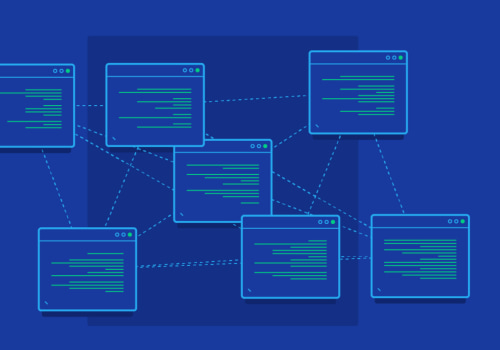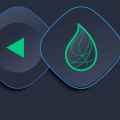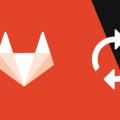Python, javascript, and Python, javascript, and Java are all powerful, general-purpose programming languages that are widely used in many industries. From web development to data science, Python, javascript, and Java are essential tools for any coding enthusiast. With their wide range of applications and vast libraries of modules, Python, javascript, and Java are the perfect languages to explore for any programmer. Additionally, there are many Profs online matlab tutors available to help those who are looking to learn more about these versatile languages. Python, javascript, and Java are all powerful, general-purpose programming languages that are widely used in many industries. From web development to data science, Python, javascript, and Java are essential tools for any coding enthusiast. With their wide range of applications and vast libraries of modules, Python, javascript, and Java are the perfect languages to explore for any programmer. Additionally, there are many Profs online matlab tutors available to help those who are looking to learn more about these versatile languages. are all powerful, general-purpose programming languages that are widely used in many industries. From web development to data science, Python, javascript, and Java are essential tools for any coding enthusiast. With their wide range of applications and vast libraries of modules, Python, javascript, and Java are the perfect languages to explore for any programmer. Additionally, there are many Profs online matlab tutors available to help those who are looking to learn more about these versatile languages. Python, javascript, and Java are all powerful, general-purpose programming languages that are widely used in many industries. From web development to data science, Python, javascript, and Java are essential tools for any coding enthusiast. With their wide range of applications and vast libraries of modules, Python, javascript, and Java are the perfect languages to explore for any programmer. Additionally, there are many Profs online matlab tutors available to help those who are looking to learn more about these versatile languages.
In this comprehensive overview, we'll discuss the various aspects of Python, from its syntax and structure to its popular libraries and frameworks.
Applications of Python
Applications of PythonPython is a powerful, versatile language that is widely used for a variety of applications, including C++ programming. From web development to machine learning, the possibilities are endless. Python can be used for developing web applications, data analysis, artificial intelligence, and more. One of the major advantages of using Python is its versatility. It has many libraries and frameworks that can be used for various purposes such as data science and machine learning. Python is a powerful, versatile language that is widely used for a variety of applications, including C++ programming. From web development to machine learning, the possibilities are endless. Python can be used for developing web applications, data analysis, artificial intelligence, and more. One of the major advantages of using Python is its versatility. It has many libraries and frameworks that can be used for various purposes such as data science and machine learning.Python also has a wide range of third-party modules that can be used for various tasks. Python is also a great choice for web development, as it is easy to learn and use. It can be used to create dynamic websites and applications quickly and efficiently. Python also has numerous libraries and frameworks that make web development even easier.
Data science is another area where Python excels. Its powerful libraries and frameworks make it an ideal language for data analysis, visualization, and machine learning. Python is also great for creating automated systems and bots that can help you with your data processing tasks. Python is also a great choice for artificial intelligence tasks such as natural language processing and computer vision.
Its powerful libraries and frameworks allow developers to quickly create powerful AI-driven applications.
What is Python?
Python is an interpreted, high-level, general-purpose programming language. It's a great choice for coding because of its versatility and ease of use. Python is designed to be simple and readable, making it an ideal language for developers of all skill levels. It also has a wide range of powerful libraries and frameworks that make it an ideal choice for complex applications. Python features strong typing, dynamic typing, and a garbage collector, which makes it a great choice for high-performance applications.Its syntax is easy to learn and understand, and it’s well-suited for both small projects and large-scale development. It also supports multiple programming paradigms including object-oriented programming, procedural programming, functional programming, and scripting. The language’s syntax enables developers to rapidly develop applications without the need to write long and complex code. Python is also very reliable, as it is highly portable and can run on any platform. This makes it a great option for developing cross-platform applications. In addition to its powerful features, Python also offers many advantages, such as its flexibility and scalability.
It can be used for everything from web development to machine learning applications. It also has an active community of developers who are constantly developing new libraries and frameworks to make Python even more useful. In short, Python is a great choice for coding because of its versatility, scalability, and wide range of powerful libraries and frameworks. Its syntax is easy to learn, making it ideal for developers of all skill levels. And its active community ensures that there are always new tools and frameworks being developed to help developers create powerful applications quickly and easily.
Getting Started With Python Programming
If you're ready to get started with Python programming, the first thing you need to know is the basics.Python is an interpreted, high-level, general-purpose programming language, so it has a few key features that you should be familiar with. These include variables, data types, and control flow statements. Variables are like containers that store data. They are used to store values or objects and can be used in expressions and statements.
In Python, variables are declared using the keyword “var” followed by the name of the variable. Data types are used to determine what type of data can be stored in a variable. There are several data types in Python, including strings, numbers, booleans, and lists. Control flow statements are used to control the execution of code.
They define how the code will be executed and which instructions will be executed first. Once you understand these basic concepts of Python programming, you can set up a development environment to start coding in Python. There are many different tools available for this purpose, such as IDEs (Integrated Development Environments) and text editors. Setting up a development environment is important because it allows you to write, test, and debug your code easily. To get started with Python programming, it's recommended that you take some tutorials or courses to learn more about the language and its features.
There are many resources available online that can help you learn Python programming, such as tutorials, books, and video courses. Additionally, there are numerous forums and communities dedicated to helping people learn Python programming. In conclusion, getting started with Python programming is easy once you understand the basics such as variables, data types, and control flow statements. Additionally, setting up a development environment and taking tutorials or courses can help you become more proficient in Python programming. With the right resources and dedication, you can become an expert in Python programming. In conclusion, Python is a powerful and versatile programming language that can be used for a variety of applications.
It's easy to learn and provides a great foundation for coding or object-oriented programming. With its wide range of features, advantages, and applications, it's no wonder why it's one of the most popular coding languages today. Python's versatility makes it an ideal choice for both beginners and experienced developers alike, as it can be used for a variety of tasks, from web development to data science.











